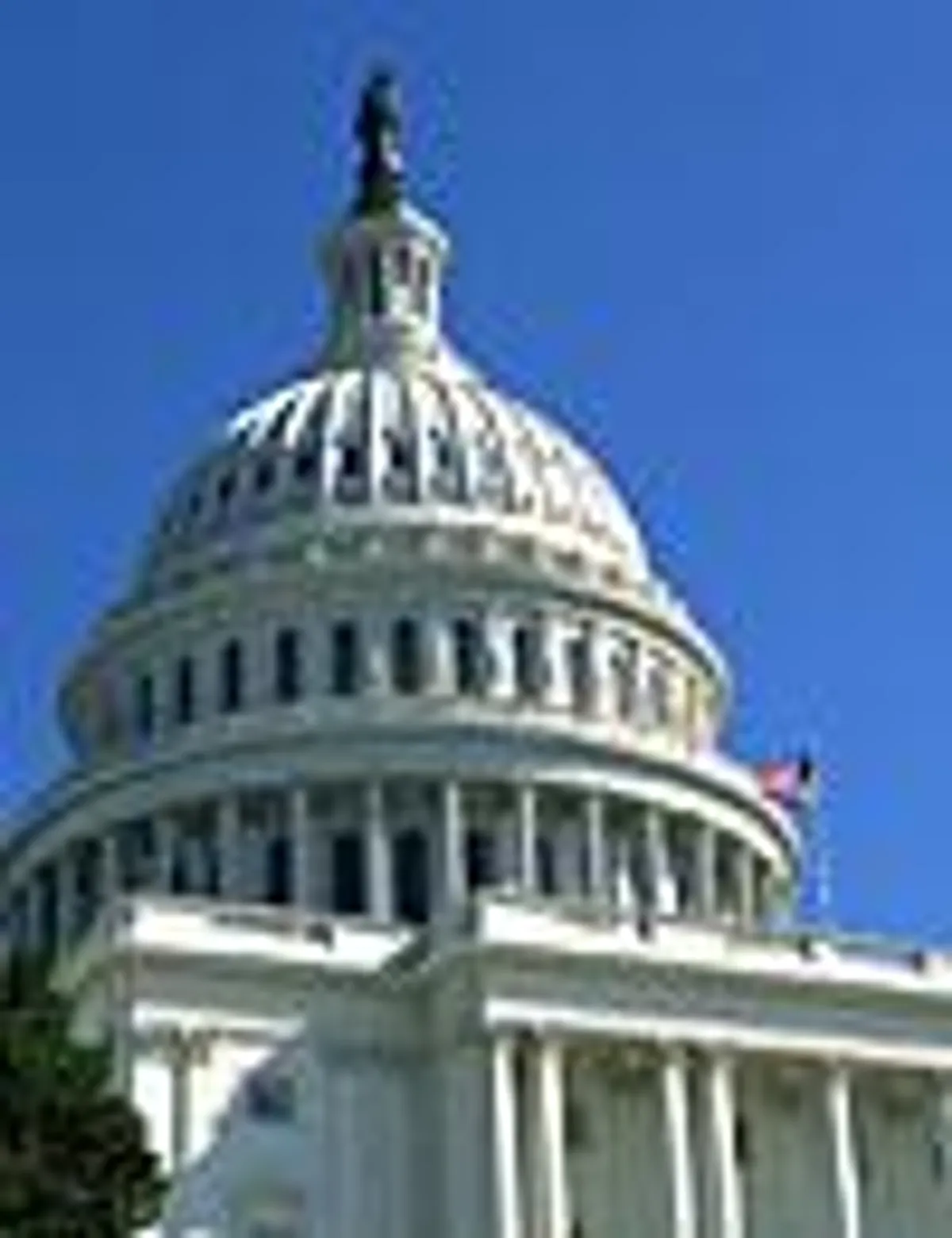
Dramatic testimony from lawmakers, scholars, business leaders, and gay civilian employees marked Wednesday's hearings on the federal Employment Non-Discrimination Act of 2007.
September 06 2007 12:00 AM EST
November 17 2015 5:28 AM EST
By continuing to use our site, you agree to our Private Policy and Terms of Use.

Dramatic testimony from lawmakers, scholars, business leaders, and gay civilian employees marked Wednesday's hearings on the federal Employment Non-Discrimination Act of 2007.
Dramatic testimony from lawmakers, scholars, business leaders, and gay civilian employees marked Wednesday's hearings on the federal Employment Non-Discrimination Act of 2007.
Also known as HR2015, ENDA, introduced in April, would make it illegal to fire, refuse to hire, or refuse to promote an employee based on sexual orientation or gender identity.
Only 20 states and the District of Columbia now protect gay men and lesbians in the workplace, and only 10 states protect workers based on gender identity.
In her opening statement to the Health, Employment, Labor, and Pensions subcommittee of the House Education and Labor Committee, the bill's cosponsor, Rep. Tammy Baldwin, a Democrat from Wisconsin, called ENDA an important step in extending rights guaranteed by Title VII of the Civil Rights Act of 1964.
Just as Title VII declared employer judgments based upon race, color, religion, sex, or national origin to be unlawful, Baldwin said, "today, we can point to a clear record demonstrating further employment discrimination based upon sexual orientation and gender identity, and it is high time that we as a nation declare this sort of discrimination unlawful as well."
Ninety-two percent of Fortune 500 companies include sexual orientation in their corporate nondiscrimination policies.
"Corporate America is supportive of this bill," Human Rights Campaign spokesman Brad Luna told Gay.com on Wednesday. The primary opposition, Luna said, "is coming from the places opposition always comes from--right-wing religious organizations."
ENDA's current iteration exempts religious organizations.
Kelly Baker, vice president for diversity at General Mills, told the House subcommittee that the legislation would help companies attract and retain top talent; provide a safe, comfortable, and productive work environment; and "help create a culture that fosters creativity and innovation that is vital to the success of all businesses."
Helen Norton, a professor at the University of Colorado School of Law, shared several cases of LGBT discrimination, including that of Robert Higgins, a gay man who told the first circuit court of appeals that coworkers targeted him for both verbal and physical harassment because of his orientation. The court told Higgins that he had no legal standing in bringing a Title VII challenge to a workplace environment, even after suffering such egregious actions as having hot cement poured on him, "because Title VII does not proscribe harassment simply because of sexual orientation," Norton recalled.
Personal testimony came from a gay police officer, Michael Carney, who recalled his efforts to fight for his job.
"Had I not been successful in fighting the bias that tried to prevent me from working, all the good that I have done for some of the most vulnerable people in my community would never have happened," he told lawmakers.
Wednesday's hearing consisted of two panels; the first, led by cosponsors Representative Baldwin and Rep. Barney Frank, a Democrat from Massachusetts, argued for ENDA, while a smaller panel argued against the bill.
In his opposition to ENDA, Mark Fahleson, an attorney in Lincoln, Neb., decried the "vague language" of the bill and insisted that ENDA could lead to "meritless litigation" and a significant new regulatory burden and cost for employers.
"In far too many instances the legislation adopts subjective or fact-specific standards that are subject to multiple interpretations," he told the subcommittee.
Congressional Democrats first attempted to add federal protections for gay men and lesbians in 1974, but were stymied by GOP opposition for 20 years. With the 1994 GOP takeover of Congress, gay rights legislation had no chance of getting to a committee hearing at all.
That changed after Democrats regained control of Congress in January. ENDA, which has bipartisan support, is just one of several LGBT rights bills Democrats are pushing forward. Without significant opposition from the business community, a version of ENDA has a good chance of passing, Luna said.
"Today's hearing was an historic advancement for ENDA," Luna said. "The witnesses gave compelling testimony that starts out this process on a high note."
Luna said he expects the full House Education and Labor Committee to mark up the legislation in the next couple of weeks and then move for its first House floor vote this fall. (Larry Buhl, Gay.com)